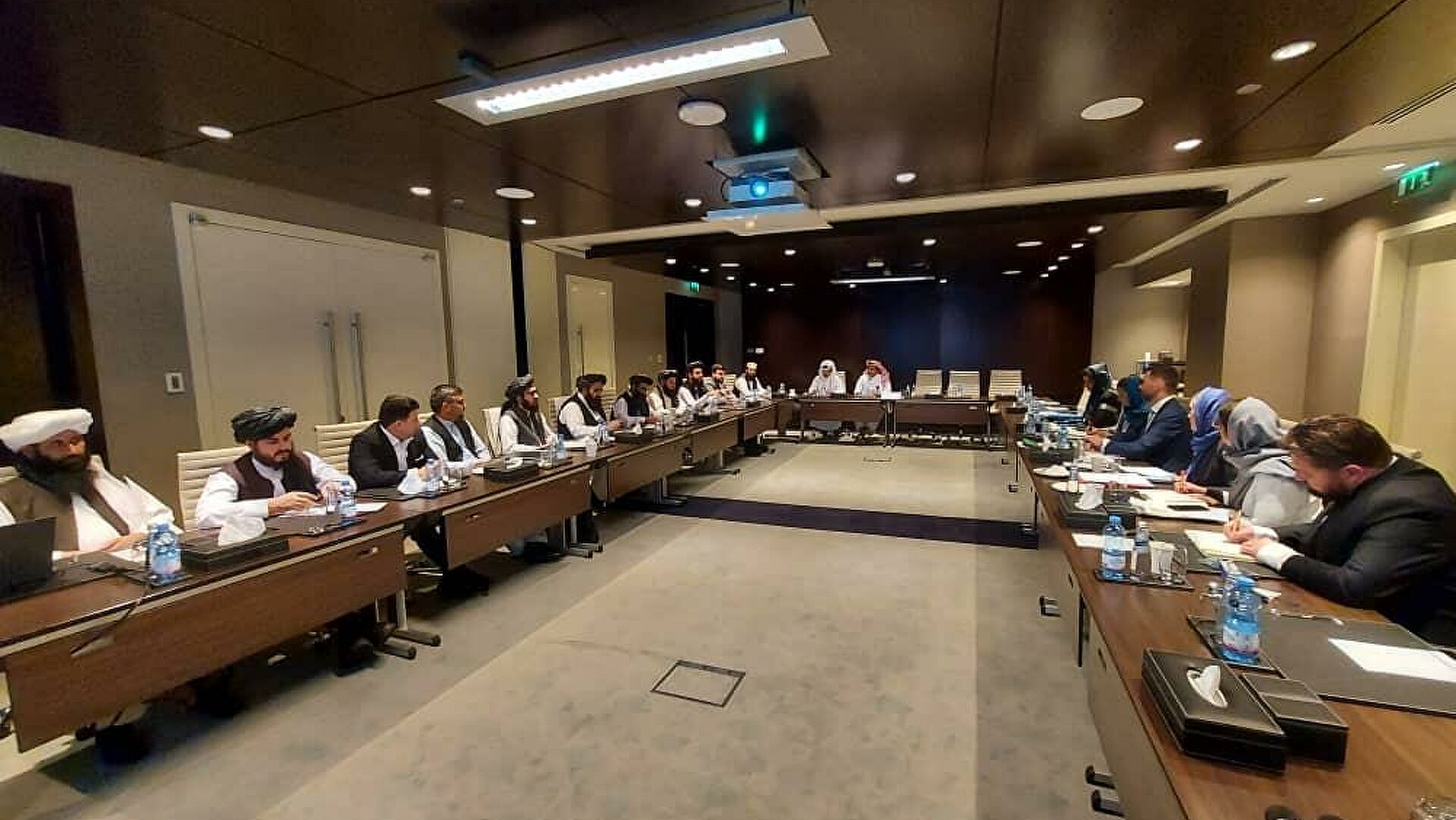Dr. Mojtaba Norouzi in an interview with the site of Strategic Council on Foreign Relations pointed out to the resumption of Taliban talks with the U.S. and Europe in Doha and also some of Taliban’s positions on the present round of talks that is in the continuation of the previous one between Taliban and the U.S. concerning the signed agreement between the two parties. He noted:” from the outset, it was almost clear for many analysts that there is nothing called anti-U.S. attitude and fighting against the arrogance in a school of thought called Taliban.
Having stated that Taliban had merely a power struggle inside Afghanistan and what has been published on the details of Doha Agreement and also their positions and performances confirm this very same issue, he added:” According to the deputy spokesman of Taliban it was supposed to talk about issues like unblocking the frozen assets of Afghanistan in the U.S., full implementation of Doha Agreement as well as resumption of diplomatic relations between the U.S. and Taliban Doha talks.
The expert on Afghanistan issues referred to the remarks made by the deputy Foreign Minister of Taliban who had said:” If the U.S. embassy reopens in Kabul, half an hour later all European embassies will return here too; we make our best effort in this respect and whereas I was among the members of negotiating delegation, I am sure that they will, God Willing, return soon”, said:” In fact, we witness that Taliban’s eyes are still cast to the West to settle their problems. They make every effort to resolve their problems through looking to the West and this trip can also be assessed within the very same framework”.
Having reminded the mutual demands of the U.S. and Taliban from each other in Doha talks, Norouzi spelled out:” After taking office by Taliban, they faced serious problems in governance. Despite these challenges, they noticed that they have to incline towards the world powers. Whereas the structure of Afghanistan economy was already based on the aids of external powers, Taliban knows no other way to resolve their problems”.
Having referred to the statement issued by the European delegation in which Taliban was asked to take quick, meaningful and tangible steps to set up a far-reaching government and to pave the ground for national reconciliation, Norouzi commented on the possibility of resolution of Taliban and Afghanistan problems with the West and continued:” the challenge of Governance is the most important challenge for Taliban at present circumstance. They have to deal with this challenge. Whereas the economic and human resources that could assist Taliban to resolve the challenge have left the country and Taliban have limited capabilities at their disposal, therefore there is very small possibility to bring them back to the track and positive governance”.
Norouzi stated that Taliban will face day-to-day increasing serious challenges in their governance. He then referred to the effort made by some individuals inside Taliban who highlight the attitude of regionalism against inclining to the West attitude and added:” there is no integration among Taliban in this connection, and we witness various and sometimes even contradicting approaches within Taliban. Some fractions have regional look and some others have an international one. However, a fraction principally rejects to look outward Afghanistan”.
The expert on Afghanistan issues continued:” It seems that in present situation and in view of various problems of the country, Taliban tries to evaluate all existing capabilities and puts every measure in the agenda in view of their capabilities. Taliban will not ignore even a single trend, capability or player. Within this very framework, one can clearly conclude that anti-West attitude is principally meaningless among them”.
Having commented on the realization of Taliban demands in Doha talks particularly in the field of international recognition and also unblocking their frozen assets, he said:” Doha talks can be considered as one step ahead for them, but the results depend on the concessions Taliban give to the U.S. and European countries behind the scene”.
According to the analyst on Afghanistan issues, if Taliban gives considerable concessions to the West, we will witness some openness, particularly, at present situation the U.S. concern is Chinese gaining power through Pakistani lobby in Afghanistan equations, and the U.S. will stress on her strategic interests in this respect. Therefore, if Taliban manages to give necessary assurances on the top of the previous ones, to the West on non-cooperation with extremist international groups, and also do not let Chinese to be the main player in Afghanistan, there may be some steps taken forward and the Westerners give them some minor concessions”.










0 Comments